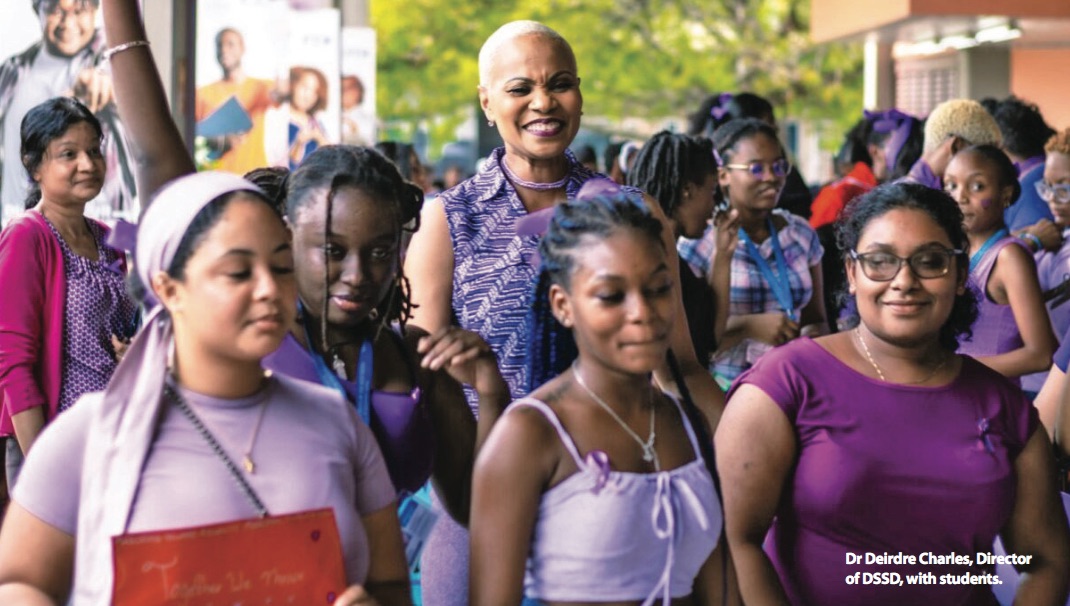
In 2010, the St Augustine campus marked its 50th anniversary with a thorough publication. The book, From Imperial College to University of the West Indies, was written by historian Professor Emerita Bridget Brereton.
It begins at the beginning: when the 490- acre site known as the St Augustine Estate was purchased for sugar production. The Imperial College of Tropical Agriculture (ICTA), established to develop and study tropical agriculture for the British Empire, was founded during 1921–22.
The book explores the circumstances leading to the formal merger of the University College of the West Indies and ICTA on October 12, 1960 - the beginning of the St Augustine campus. This took place during the short-lived West Indies Federation which collapsed during 1961–62.
Professor Brereton wrote that the handing- over ceremony at the new Queen’s Hall in Port of Spain was attended by the region’s elite:
“the Governor-General and Prime Minister of the West Indies Federation; the Governor and Premier of Trinidad and Tobago; ministers of both the Federal and the local governments; and, of course, the top officials of UCWI and ICTA.
“The speech of the day was by Arthur Lewis, Principal of UCWI, the future first Vice- Chancellor of UWI (1962) and Nobel Prize winner.”
ICTA, she noted, “formed the core of the first faculty at the new UCWI campus, the Faculty of Agriculture (1960), followed in 1961 by the Faculty of Engineering. Under the leadership of Philip Sherlock and Dudley Huggins in the 1960s, the fledgling campus was transformed as part of the regional university, which gained its ‘independence’ as UWI in 1962. In 1963, undergraduate teaching in the arts, social sciences, and natural sciences began under the umbrella of a ‘College of Arts and Sciences’.
From a total student body of 67 in 1960, all in the Faculty of Agriculture, the campus had 1,270 students in 1969, studying many different subjects and courses.”
Often overlooked because of the prodigious output of its faculties and staff, The UWI has had a formidable presence in the shaping of West Indian identity. At the inception, Mona in Jamaica was the first campus, St Augustine became the second, and Cave Hill in Barbados joined in 1963. With degree programmes at the different campuses, it meant that students had to converge wherever their specific selections were available. This proved to be a powerful element of developing a sense of being West Indian, so that despite the failure of the Federation, as nations sought independence, there remained a bond—even amidst regional political disagreements.
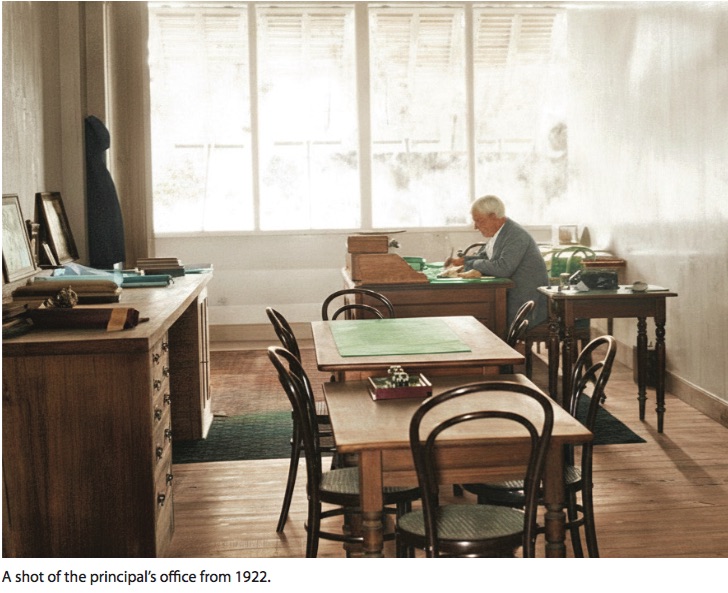
UWI St Augustine, as part of the regional UWI, has always been an asset for the development of the Caribbean. It started as a centre for the study and research of agriculture and plant science in a regional society dependent on farming, rapidly moving into engineering to meet needs for modernisation and industrial development, and for education, inquiry, information services, and policy support in the arts and sciences soon after that.
For decades, the university and its Trinidad and Tobago-based campus served this role to the benefit of this young, post-independence community of islands. More recently, The UWI has adapted to face the increasingly urgent challenges affecting the region and the world. Food security, climate change, global pandemics, international conflict, disruptive technologies such as AI, international economic uncertainty, and a host of other threats beset us—and UWI St Augustine has confronted them.
Faculties such as Food and Agriculture (FFA), Engineering, Science and Technology, and Medical Sciences (through the School of Veterinary Medicine) have addressed food security in numerous ways. These include the introduction of advanced technology farming methods, the creation of a seed bank for local seeds, the development of alternate crops and livestock such as breadfruit and agouti, the development of organic and sustainable crop foods and pesticides, and advocacy and policy support for the growth of the farming and food production sector.
The UWI, and many scholars from the St Augustine Campus in particular, have been international leaders in climate research and policy development, particularly on its impact on Small Island Developing States (SIDS). Researchers from several faculties work with international agencies at the highest level, including the United Nations, in recording the effects of climate change, coastal change, and the degradation of living species and ecosystems. UWI St Augustine’s scholars are lead authors of, and contributors to, the Intergovernmental Panel on Climate Change (IPCC) and the Intergovernmental Science-Policy Platform on Biodiversity and Ecosystem Services (IPBES) documents.
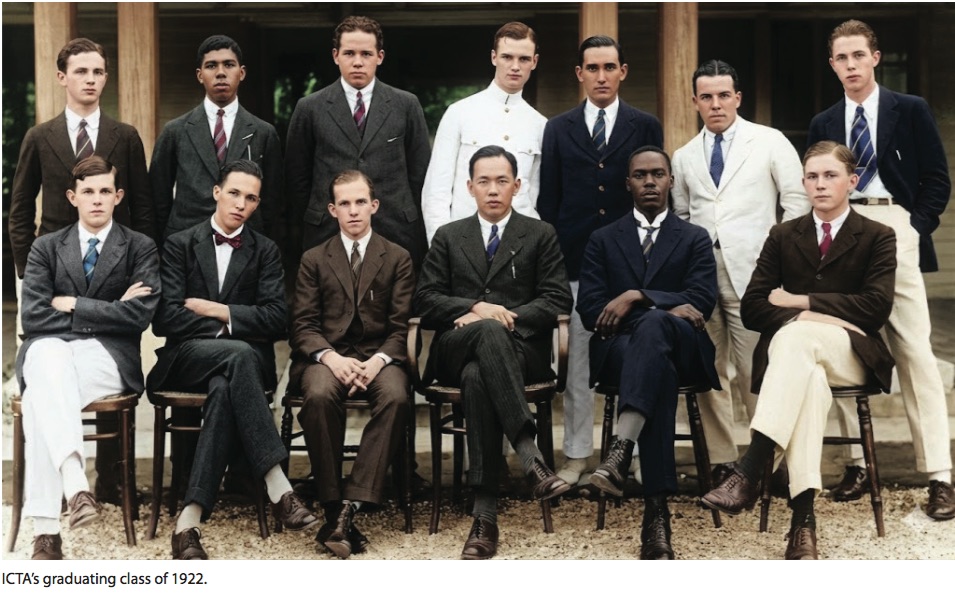
The campus’s social scientists measure and report on the impact of climate change-related trade policy on Trinidad and Tobago’s economy, which is heavily dependent on carbon-intensive exports. Its scientists work with T&T-based companies to develop and measure activities designedto positively impact the environment, such as reforestation programmes. Governments also work with UWI St Augustine to develop sustainability initiatives.
In these and many other areas, UWI St Augustine has been vital in understanding the issues the region faces and influencing the solutions.
From a campus with fewer than 100 students, dominated by the Main Administration Building and vast open space, UWI St Augustine has grown into a community of well over 14,000 students (the exact figure was 14,731 in Academic Year 2023/2024) rich with landmarks that sit alongside its many green spaces. Faculty buildings and specialised facilities - such as the Student Administration Building, the Sport and Physical Education Centre, the Daaga Auditorium, and the Teaching and Learning Complex - add purpose, character, and beauty to the campus.
The facilities spill far beyond the main campus to Mt Hope, home of the Faculty of Medical Sciences, and greater St Augustine, where the Institute for Gender and Development Studies, the UWI Seismic Research Centre, the HEU Centre for Health Economics, and the Department of Creative and Festival Arts reside at the North Campus.
One of the most imposing - and important -structures on the main campus is the Alma Jordan Library. The descendant of ICTA’s library (known as the Registry and Library until 1968), AJL has a collection that dates back to 1898. The current library was formally opened in 1970, and since then has grown to become what former Campus Librarian Mr Frank Soodeen describes as being “globally recognised as the premier repository and provider of Caribbean information resources and services and to advance learning and knowledge creation.”
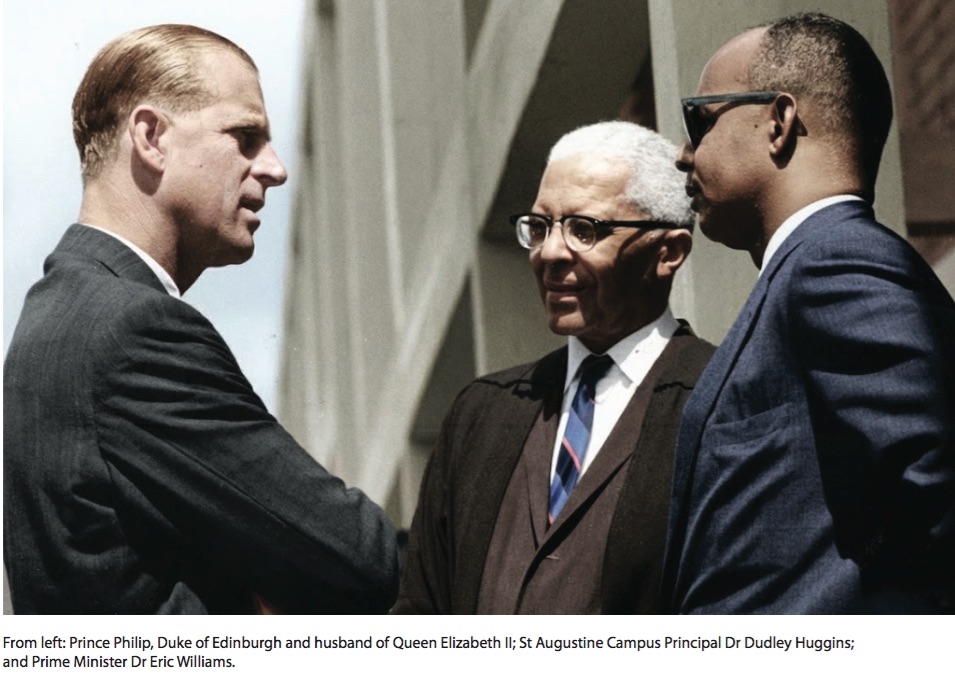
AJL also houses the West Indiana and Special Collections Division. The mission of this internationally recognised repository, as stated by its own materials, is to “acquire, preserve and provide access to material emanating from the West Indies, produced by West Indians, and on the West Indies as well as on the West Indian diaspora.”
AJL is not just for students; it is a source of knowledge available to the world. In 2008, AJL launched its digital repository service, UWISpace, making it much easier to access library materials.
University life is about more than studying. From almost the beginning, student sports, recreational activities, and representation have been integral to campus life. UWI St Augustine supports students in all these areas primarily through its Division of Student Services and Development (see article in this issue). The students themselves, with assistance from the campus, represent their constituency through the Guild of Students.
At the start of every academic year, the campus comes to life with activities such as Guild Fest, where students meet, mingle, and become part of the campus community. This is an incredibly important experience for new and regional/ international students to orient them and let them feel a sense of belonging.
And during the quiet and rigorous months filled with lectures, coursework, and exams, the students can access help for their academic, financial, and emotional needs.
The UWI has a history of student protest and activism dating back to the 1960s. As the world was being roiled by anti-colonial and racial justice movements, that energy naturally took root in the Caribbean. In 1970, the campus became the epicentre of the Black Power Movement in Trinidad, led by the Guild of Students under then Guild President Makandal Daaga (born Geddes Granger).
That instinct for social activism has not only continued but has been institutionalised at The UWI through the Institute for Gender and Development Studies (IGDS), which remains a constant voice in Trinidad and Tobago and the wider region, advocating for gender justice and equality. Daaga’s contribution to the campus and society has been formally recognised through the naming of the Daaga Auditorium (one of UWI St Augustine’s preeminent venues) and the Makandal Daaga Scholarship at the Faculty of Law.
The UWI St Augustine has an outstanding legacy of sport. Indeed, cricket legend Sir Frank Worrell was Dean of Students at the campus starting in 1965. In an editorial in the 1966 Pelican Annual (the student publication), Sir Frank described the landscape: “the University Games Committee comprises the ten recognised West Indian sports... football, tennis, cricket, rugby, athletics, hockey, volleyball, netball, billiards, and table tennis.”
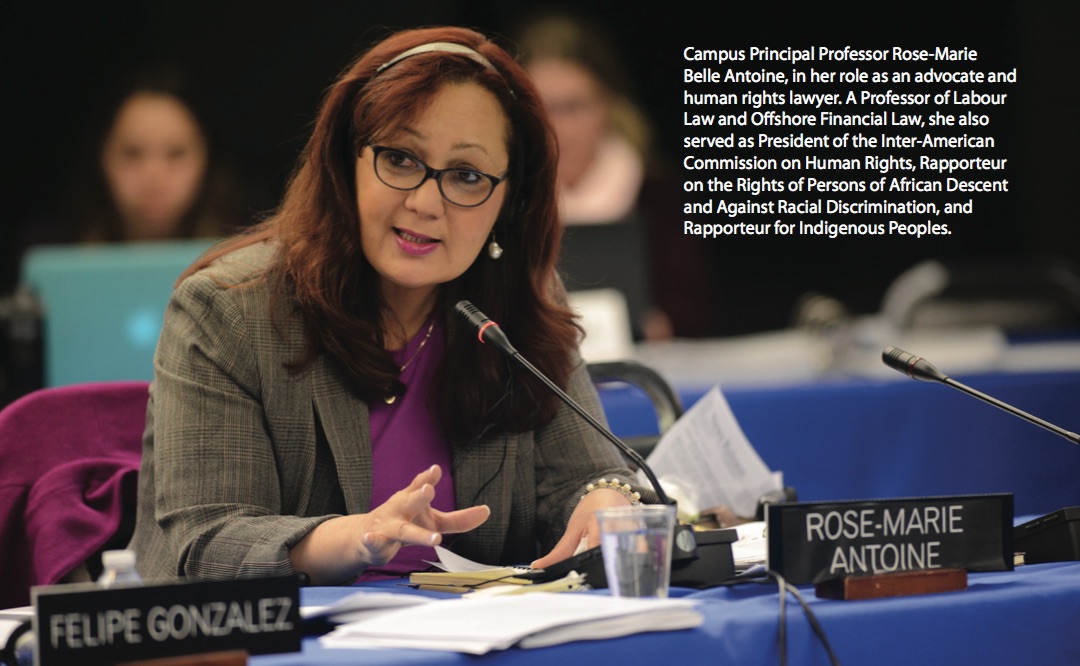
However, over the years, that strong balance of academics and sports became weighted on one side. In recent decades, that has been changing, most notably with the launch of the Faculty of Sport in 2017. It is a single faculty that covers the four campuses at Cave Hill, Mona, Global and St Augustine. Each campus has an Academy of Sport. Now, UWI St Augustine has eight faculties: Engineering, Food and Agriculture, Humanities and Education, Medical Sciences, Social Sciences, Science and Technology, Law, and Sport.
In 2022, Professor Rose-Marie Belle Antoine assumed the position of Campus Principal. Professor Antoine—a scholar, educator, and attorney-at-law with a deep commitment to human rights and regional development— leads UWI St Augustine during one of its most pivotal eras as the university seeks to develop new sources of income, adapt to changes in education and technology, and meet the previously mentioned regional and global challenges. There have been great successes so far. One of the most exciting has been the development of The UWI MADE brand of products and services.
Principal Belle Antoine reported that “In the area of innovation and entrepreneurship, we made major progress in several of our commercial projects under the UWI Made brand. These include UWI Seal-It, a line of asphalt-based sealants for tropical climates, developed by members of the Department of Chemistry in the Faculty of Science and Technology; UWI Fine Cocoa Ltd, a manufacturing centre for cocoa-based products established by the Cocoa Research Centre; Biophyt, an eco-friendly pesticide and plant stimulant developed by the Faculty of Food and Agriculture; and Humankind Studios, a multimedia production house created by the Faculty of Humanities and Education.”
Most recently, the campus launched an Artificial Intelligence Innovation Centre (AIIC). The AIIC, according to the organisation itself, “is the Caribbean’s first and largest centre dedicated to advancing research, capacity building, commercialisation, and policy and governance in the field of artificial intelligence. Established at UWI St Augustine, the AIIC currently partners with 20+ institutions, houses 50+ members, and hosts 35+ projects.”
From agriculture to AI, that is quite an evolution over 65 years. And the journey continues.